Soft power and its effect on geopolitical developments of the Islamic Republic of Iran
Mots-clés :
Soft power, geopolitical, nations, international power.Résumé
One of the factors shaping and continuing the relationship between nations on the international stage is power. Power can be defined as the use of various facilities, ways and means to influence the mind and behavior of others in order to achieve the goals. The nations and, consequently, the states seek their own interests and desires in the international area, and the achievement of these interests is a function of the level and degree of national power, especially in comparison with other countries. If a country has a high national power, it can meet its demands unhindered. Governments seek to pursue and achieve their interests through cooperation, competition and conflict. But it is clear that national interests are not achieved on their own and in a vacuum, in order to achieve it, it is necessary for governments to enjoy national power at an acceptable level. The more a country can increase its power, the more it can ensure its survival and security and, on the other hand, the more it can pursue and fulfil its goals at the regional and international levels.
There are several ways to influence the behavior of others: they can be forced into an action by threats or by the use of force; the use of economic resources may force others to follow; or they can be attracted and made to accompany by taking advantage of the software components of power (Harsij and Tuyserkani, 2009: 172). The formation of relations between countries and the social order at the regional and international levels and the continuity of relations, as well as the role of each country in the international events are under the influence of power. Therefore, some consider the power as the most important component of the relationships and status of countries in the field of international relations (Pishgahifard et al., 2011: 192).
During the last decades, especially with the start of the 21st century, and the rule of globalization in international relations, the sources of exercising power have also been altered, and the governing equations of societies have been undergoing profound transformations, so that the intangible forms of power have become important. So that the means of power and achievement of interests and goals in international politics have changed, and the origins and methods of exercising power have changed from hard power to soft power. In other words, however the military and economic power that may have been formed on the basis of a lure or threat, often forces others to change positions, is called hard power. On the other hand, societies and governments peruse their powerfulness, not depending on the merely material resources of power, but also on the ability to change the behavior of other states, and this aspect of power is called soft power which is the product and outcome of an international credit gain and indirect effect coupled with satisfaction on others.
Currently, most of countries have made significant investments, even at regional levels, to improve their soft power resources. Undoubtedly, the Islamic Republic of Iran has been not immune from the effects of this spin to the manifestations of soft power globally. With its geopolitical position, ideology, Islamic religious culture, the Islamic Republic of Iran has considerable resources for exercising the soft power, which are well achievable in the case of accurate knowledge and appropriate investment. In this paper, we first attempt to identify the sources of soft power from different perspectives, and will further examine the effects of soft power on the sources of power for the Islamic Republic of Iran and the developments of these resources.
Téléchargements
Références
Adami, Ali & Mahdi Zolfaghari (2012). Effect of Soft Power in General Diplomacy of Islamic Republic of Iran, Quarterly Journal of Political and International Approaches, No. 29
Baki, Mahdi (2010). The soft power of the Islamic Republic of Iran (Case Study: Lebanon). Tehran, Imam Sadiq (AS) University and the secretariat of psychological operation congress
Derakhsheh, Jalal & Mostafa Ghafari (2011). Public Diplomacy of the Islamic Republic of Iran in the Islamic World "Opportunities, Actions, Priorities and Achievements". Culture-Communication Studies, Year 12, No. 16
Eltiyaminiya, Reza; Ali Taqvaeeiniya (2016). Explaining the role and place of soft power in realizing the goals of domestic and foreign policy, Quarterly journal of political researches of the Islamic world, year 6, No. 3
Eyvazi, Mohammad Rahim and Parsa, Mona (2013). Analytical model of soft power and international politics. Quarterly Journal of Soft Power Studies, Year 3, No. 919 .
Hafeznia, Mohammad Reza (2000). A new definition of geopolitics. Quarterly Journal of Geographic Research, No. 58 & 59
Hafeznia, Mohammad Reza and Seyyed Mohammad Reza Shams Dolatabadi (2009). Geopolitical Interests and National Strategy, Case Study: Iran toward Central Asia, Quarterly Journal of Strategic Defense Studies, Year 10, No. 36
Hafeznia, Mohammad Reza. (2000) Fundamentals of Socio-Political Studies. Qom, Publications of the Organization of Seminaries Abroad
Hafeznia, Mohammad Reza. (2006) Principles and concepts of geopolitics. Mashhad, Papeli Publications
Harsij, Hossein. Mojtaba Tuyserkani & Leila Jafari (2009). Geopolitics of Iran’s soft power. Journal of Political Sciences
Harsij, Hossein; Mojtaba Tuyserkani (2009). Comparison of the soft power of the Islamic Republic of Iran and the United States in the Middle East. Political Knowledge, Year 5, No. 1
Izadi, Hojatollah (2008). Principles of soft power of the Islamic Republic of Iran. Quarterly Journal of Basij Studies. Year 11, No. 4
Jafari Panah, Mahdi & Hosseinpour Ahmadi (2013). Soft power from the perspective of Islam and the application of its components in the Islamic Republic of Iran. Two Quarterly Journals of Soft Power Studies,Year 3, No. 8
Jones, Walter (1373). The logic of international relations. Translation: Davood Heidari, Tehran, International Political Studies Office
Khezri, Ehsan; Seyyed Hamzeh Safavi & Amin Parhizkar (2015). Evaluating Roots of the Iran-Saudi Arabia Disputs (Case Study: Iraq, Bahrain and Yemen). Quarterly Journal of International Political Studies, Islamic Azad University, Shahreza Unit, No. 23
Khorasani, Reza (2008). Place and Role of Cultural Power in Foreign Policy and Its Effect on the Process of Global Developments, Journal of Political Sciences, Year 11, No. 41
Malakutian, Mostafa (2010). The Islamic Revolution; International System and Future of the West, Quarterly Journal of Islamic Revolutionary, No. 20
Mirheidar, Darreh (1998). Geopolitics: Providing a new definition. Quarterly Journal of geographic research, No. 51
Moayyeri, Ali Reza (2004). Islamic Republic of Iran and developments of the South Caucasus in the 21st century. Quarterly Journal of Central Asian and Caucasian Studies, No. 48
Mousavi, Seyyed Sadruddin (2014). The analytical model of the soft power of the Islamic Republic of Iran in the Islamic world. Quarterly Journal of Political Thought in Islam, Year 1, No. 1
Nye, Joseph (2008). Power in the information age; from realism to globalization. Translation: Saeed Mirtorabi, Tehran, Strategic Studies Research Center
Nye, Joseph S. (2002), The Paradox of American Power: Why the World’s Only Superpower Can’t Go It Alone, Oxford University Press
Nye, Joseph S. (2007), “Notes for a Soft Power Research Agenda”, in Felix Berenskoetter and M. J. Williams (Eds.), Power in World Politics, London and New York: Rout ledge
Pishgahifard, Zahra; Mohammad Bagher Qalibaf; Mehdi Pourtaheri and Ali Sadeghi (2011). The position of soft power in national power with an emphasis on the Islamic Republic of Iran. Strategic Quarterly, Year 20, No. 61
Qalibaf, Mohammad Bagher, Seyed Mohammad Yaghoobi and Abolghasem Mahmoudi (2014). Geopolitical Explanation of the Islamic Republic of Iran's Foreign Policy in the Persian Gulf Region Based on Fossil Energy, Quarterly Journal of Geopolitics, Year 10, No. 3
Rafipour, Faramarz (1997). Development and contradiction: An attempt to analyze the causes of the emergence of the Islamic Revolution and social issues of Iran. Tehran: Shahid Beheshti University, Saham-e Enteshar Company
Saeedi, Rooh-ol-Amin. Moghaddamfar, Hamid Reza (2014). The soft power sources of the Islamic Republic of Iran. Quarterly Journal of Soft Power Studies, year. 4, No. 11
Tuyserkani, Mojtaba (2009). An analysis of the soft power of the Islamic Republic of Iran in Central Asia compared to the Middle East. Journal Quarterly of Central Asia and the Caucasus, No. 67
Yazdani, Enayatullah, Mojtaba Tuyserkani & Sousan Moradi (2007). Geopolitical Explanation of Power Competition Case Study: Central Eurasia in the New Great Game, Geopolitical Quarterly Journal, Year 3, No. 3




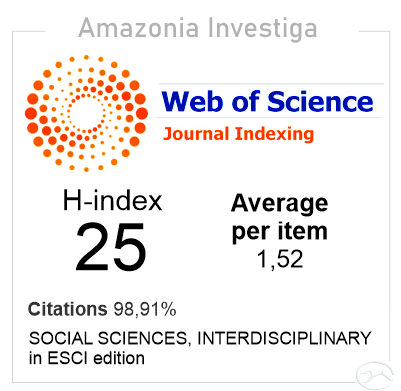







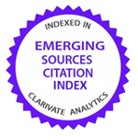

















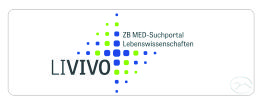



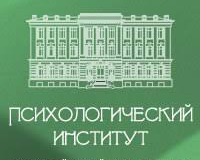












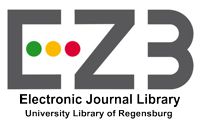

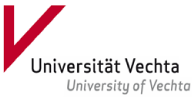



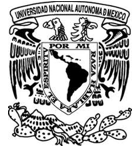











.gif)






